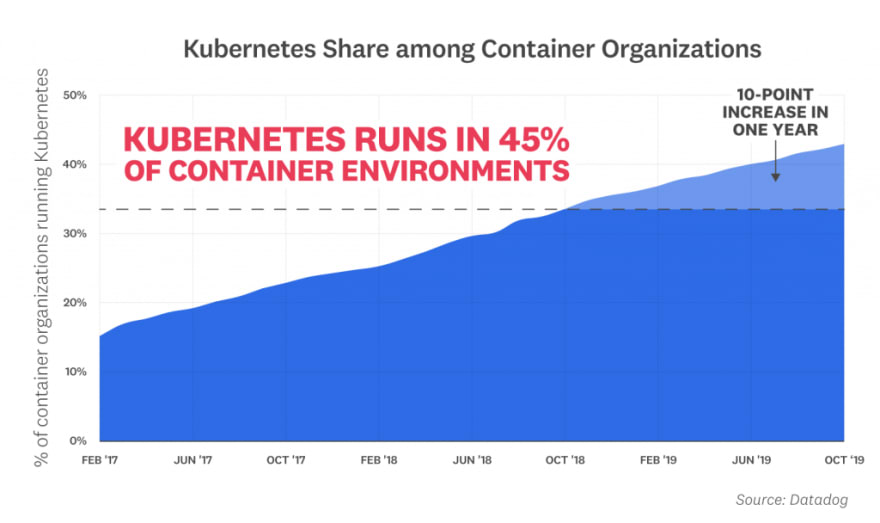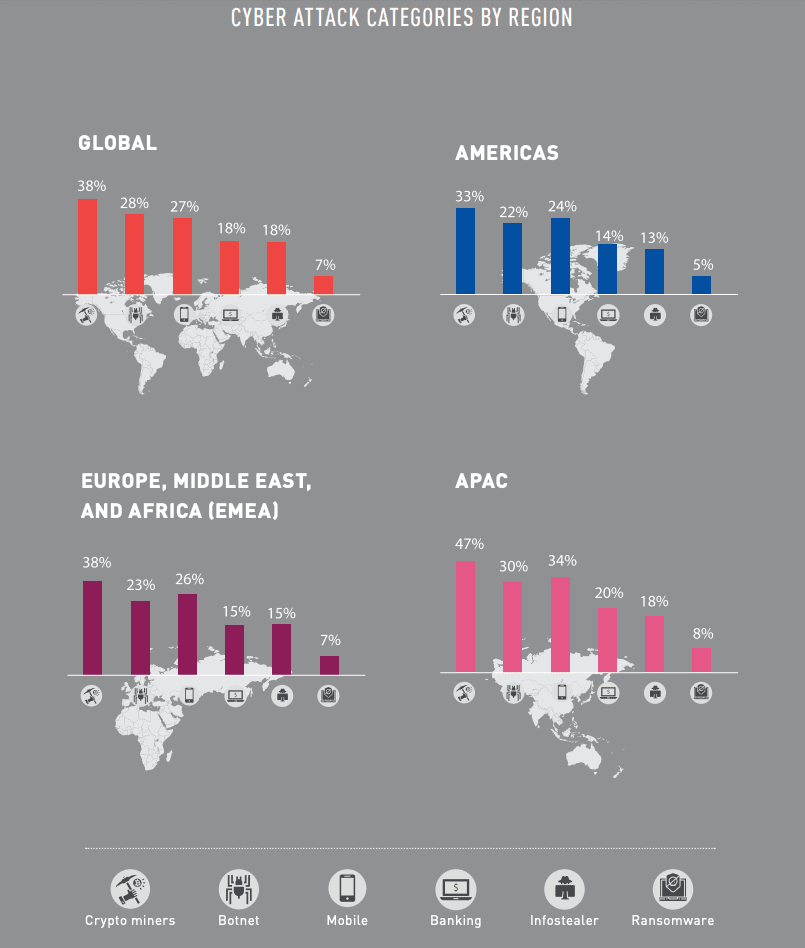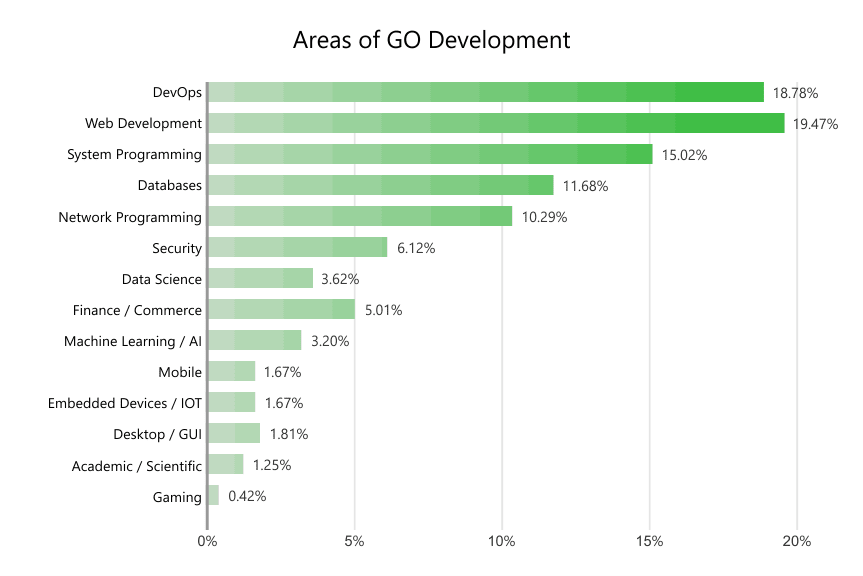As of the current IT market, the DevOps domain is one of the best options for IT folks in terms of salary and career growth. One common question I get quite often is "How to become a DevOps engineer?"
In this blog, I will try to answer this with my own experiences in practicing DevOps in different organizations.
Many people argue (including me) that there is nothing like a "DevOps Engineer" or a "DevOps Team" because it is not a thing. However everyone in the industry now got used to the term "DevOps engineer" and as long as you understand the DevOps philosophy, these titles don't matter much.
Having said that, there are few misconceptions about what DevOps really means. One such misconception is "Automation is DevOps". Developing skills related to automation is not enough to become a DevOps Engineer.
Wikipedia says,
DevOps (a clipped compound of development and operations) is a culture, movement or practice that emphasizes the collaboration and communication of both software developers and other information-technology (IT) professionals while automating the process of software delivery and infrastructure changes.
From the above definition, it is clear that DevOps is not about any tools or technologies. It is a philosophy for making different IT teams work together to deliver better and fast results through continuous feedback.
Read this article to understand DevOps in a better way. What does DevOps really mean?
Here is an interesting trend graph shoring DevOps popularity in last 5 years.
Organizations trying to achieve DevOps requires people with collaborative skills, willing to change and adopt new technologies, a good understanding of systems, automation tools, CI tools, Version control systems, networking, experience in using project management tools, etc. that are required for getting an app into production without much delay.
Also, the design or the pipeline designed by the team should be able to deliver small updates or releases without much manual intervention. This could happen only if there is a cultural shift in the way teams work.
Skillsets To Become a DevOps Engineer
You must understand the fact that DevOps is not specific to developers or system engineers. It's for anyone who is passionate about evolving practices, technologies, and willing to work in a collaborative environment where everything is automated to make everyone's life so easy.
In this article, I will explain how you should prepare yourself for tools and technologies to adapt and work in DevOps culture.
Note: In this article, I have covered many verticals. It is not possible for a beginner to be a master of everything. However, having a fair amount of knowledge in these areas will help you if you are pursuing a career in DevOps
Understanding DevOps Culture
The first and foremost thing is to understand the DevOps culture. It is all about bringing people together to work towards a common goal in an efficient way. One thing IT managers should do before getting into DevOps toolsets is that every member of the team should be mentored on how DevOps work and its cultural aspects. It avoids lots of confusion in the team.
People will stop pointing fingers for various issues once they understand the fact that when there is delay or issue in project delivery, everyone involved in the project is equally responsible.
Once you practice DevOps culture, you will stop saying that "CI/CD and automation is DevOps"
Resources
- DevOps Culture and Mindset [Coursera]
- The Phoenix Project [Recomended eBook]
Learn about *nix Systems
We are in an era where we cannot live without Linux/Unix systems. You should get a better understanding and working knowledge of various Linux distributions that are highly used by organizations (RHEL, Centos, Ubuntu, CoreOS, etc).
As per The Linux foundation case study, 90% of the public cloud workload runs on Linux
Here is another interesting study from Redhat, which shows the different Linux distros being used in the public cloud.
Now you have enough reasons on why you should focus on Linux.
When it comes to Linux, its all terminal, GUI is less preferred in *nix world. Get your hands dirty with terminals of these systems.
You can use a Virtual box or AWS/GCP/Azure to spin up Linux servers.
You can start with the following.
- Understand the Linux booting process
- Install and Configure web servers (Apache, Nginx, Tomcat, etc..)
- Learn how Linux processes work.
- Learn how SSH works.
- Learn about different file systems.
- Learn about system logging, monitoring, and troubleshooting.
- Learn about important protocols (SSL, TLS, TCP, UDP, FTP, SFTP, SCP, SSH)
- Learn to manage services and try to create a service on your own (Initd, Systemd)
- Host static/Dynamic websites on web servers.
- Setup Load balancers & Reverse Proxys (Nginx, HA proxy, etc)
- Break something and learn to troubleshoot.
Resources
- Introduction to Linux [edX]
- Learn Linux in 5 days [Udemy]
Understand How Infrastructure Components Work
The basic building block of any organization is its Infrastructure. It could be on the cloud or on-premise Data Center. An overall understanding of Infrastructure components is a must for a person who wants to practice or work in a DevOps environment. You should mainly have a basic understanding of the following.
Networking
- Subnets
- Public network
- Private network
- CIDR Notations
- Static/Dynamic IP's
- Firewall
- Proxy
- NAT
- Public & Private DNS
- Troubleshooting
- VPN
High Availability
- Clusters
- Fail Over Mechanisms
- Disaster Recovery
Security
- PKI Infrastructure
- SSL certificates
Storage
- SAN
- Backups
- NFS
Single Sign On
- Active Directory/LDAP
Load Balancers
- L5 Load Balancers
- L7 Load Balancers
- Load balancing algorithms
- Reverse Proxy
VPN
- Site to Site VPN
- Client to site VPN
There could be more things but I have highlighted the key components in an IT Infrastructure.
Get Certified On Cloud
When I say "Get Certified", please do not use the exam dumps just to pass the certification. It adds very less value to you. May be its good for the organization to show the clients that they have certified cloud engineers.
Most of the public cloud market share is currently owned by AWS. Here is the report from Businesswire.
Pick any one public cloud, preferably AWS, and learn about all its core infrastructure services. Do hands-on on all the core services and understand how it works.
Watch AWS re-invent videos and understand how other organizations are using AWS services for hosting their applications. Trust me, you will learn a lot from these videos and no online training will provide that much information on how to run production workloads on AWS.
If you are planning to get certified GCP, watch their Google Next videos.
Use the certification to gauge yourself on the respective platform.
Resources:
- Ryans AWS Certification Courses
- Google Certified Associate Cloud Engineer Certification
- Microsoft Azure - Beginner's Guide + AZ-900 preparation
Learn to Automate
Automation has become an important aspect of every organization. We no more create servers manually we just automate it.
As per a report from Redhat, many organizations are investing in their automation initiatives. Check out this data.
From provisioning servers, application configuration, deployment, everything should be automated. You can learn any of the following devops toolsets that fit your needs.
For Dev Environment
- Vagrant
- Docker Desktop
- Minikube
- Minishift
For infrastructure provisioning
- Terraform
- CLIs (of respective cloud provider)
For Configuration Management
- Ansible
- Chef
- Puppet
- Saltstack
VM image management
- Packer
Resources:
- Learn DevOps: Infrastructure Automation With Terraform
- Ansible for the Absolute Beginner - Hands-On - DevOps
- Docker for the Absolute Beginner
Containers, Distributed Systems & Service Mesh
Container adoption is increasing day by day. The organization you work for might not be using containers now, however, it is best to have a hands-on knowledge working with container technology like Docker. It will gain you some competitive edge among your peers.
Once you understand docker, you can try out its clustering and orchestration tools like Kubernetes, Docker Swarm, etc.
These platforms are best suited for microservices-based architecture.
Here is an interesting Kubernetes usage trend by Datadog.
Here is the five year increasing search trends for Kubernetes.
A service mesh is an advanced topic when it comes to distributed systems. If you are a beginner to container toolsets, you can learn this after gaining a good knowledge of microservices-based architecture.
Resources
- Kubernetes Tutorials For Beginners: Getting Started Guide
- Best kubernetes courses
- https://github.com/kelseyhightower/kubernetes-the-hard-way
Logging & Monitoring
Logging and monitoring are very important aspects of an infrastructure.
Most of the apps deployed in the infrastructure will produce logs. Based on architecture and design, logs will be pushed and stored in a logging infrastructure.
Every company will have a logging infrastructure. Commonly used stacks are Splunk and ELK. Also, there are few SaaS companies like Loggly which provides logging infrastructure.
Logging systems will be used by developers, operations team and security teams to monitor, troubleshoot, and audit applications and infrastructure.
In every organization, mission-critical applications will be monitored 24/7. There will be monitoring dashboards. Generally, dashboards are created from logging sources, or metrics generated by the application.
Also, there will be alerting systems. Based on the rules configured in the monitoring systems, alerts will be triggered.
For example, an alert could be triggered as a slack notification, Jira ticket, email alert, ServiceNow incident ticket, or xMatters phone call. Alerting workflows differ from organization to organization.
As a DevOps engineer, you should be able to query logs and troubleshoot issues in non-prod and prod environments. Understand regular expressions is very important to query logs in any logging tool.
Resources
- Elastic Stack - In-Depth & Hands-On
- Monitoring and Alerting with Prometheus
- Art of Monitoring [eBook]
- Regular Expressions (Regex) Tutorial
Understand Security Best Practices (DevSecOps)
DevSecOps is another area dealing with integrating security practices in each stage of devops.
Wikipedia says,
DevSecOps is an augmentation of DevOps to allow for security practices to be integrated into the DevOps approach. The traditional centralised security team model must adopt a federated model allowing each delivery team the ability to factor in the correct security controls into their DevOps practices.
Checkpoints 2020 security survey shows different cyber attacks by regions.
In cloud environments, crypto mining is a common attack. This mostly happens when the cloud access secrets are maintained poorly so that hackers get access to it.
When it comes to DevOps, secret management for applciations and infrastructure componets should follow standard security practices.
Following image shows the key DevSecOps standard practices published by Redhat.
Hashicorp Vault is a great secret management tool you can look at. There are many workflows available to manage environment secrets.
Resources:
Learn Coding & Scripting
In today's world, we treat everything as code. Even though there are enough tools to automate everything, you might need custom functionality that a tool may not offer. In such cases, coding/scripting comes in handy to achieve those functionalities.
For example, Jenkins pipeline as code requires an understanding of groovy, Ansible custom module requires understanding on python, Writing Kubernetes operator requires Golang experience.
You can learn the following commonly used scripting languages.
- Bash/Shell
- Python
- Golang
Golang is really getting popular in the DevOps domain. Lots of DevOps tooling are done using Golang nowadays. In fact tools like Kubernetes, terraform are written in go.
A survey was done by JFrog for Golang adoption during GopherCon and 18% of the respondents said they use Golang for DevOps related work.
Resources
- Complete Python Bootcamp: Go from zero to hero in Python 3
- Learn How To Code: Google's Go (golang)
- Linux Shell Scripting: A Project-Based Approach to Learning
Learn Git, Learn to Document, Learn about GitOps
It is very important to version control everything you do (except passwords and secrets :P). Git is the best version control tool. There are plenty of tutorials available on git and it will not take much time to learn important git operations.
You can start with Github or Bitbucket as your remote code repository.
Once you understand Git, learn about GitOps.
So what is this GitOps anyway? here is what gitops.tech explains GitOps
GitOps is a way of implementing Continuous Deployment for cloud native applications. It focuses on a developer-centric experience when operating infrastructure, by using tools developers are already familiar with, including Git and Continuous Deployment tools.
Next important thing is to document every important thing you do. Every repository must have a README file which should explain your code in a better way. Good documentation will not only help you but also someone who tries to use your code.
Resources:
- Git Complete: The definitive, step-by-step guide to Git
- Git Basics Every Developer and Administrator Should Know
Understand End To End Application Delivery Lifecycle
When it comes to application delivery lifecycle, there are three important concepts you need to be aware of.
- Continuous Integration
- Continuous Delivery
- Continuous Deployment
Read this release process management article to understand how a typical application development, build, testing, deployment, approval process, and validation work.
Learn to use CI/CD tools like Jenkins, Travis CI, GoCD, etc
Here is a good pictorial representation on CI/CD process by bmc.

DevOps vs SRE
SRE is another evolving topic in DevOps community.
SRE is set of practices and philosophies emerged from google.
Here is what google says about DevOps and SRE
DevOps and SRE are not two competing methods for software development and operations, but rather close friends designed to break down organizational barriers to deliver better software faster.
I recommend these official documents from Google to understand more about SRE.
Read Read and Read
Nothing will gain knowledge like reading. Read at least one DevOps tech blog related to engineering. Follow all the engineering blogs like Netflix, Twitter, Google, etc. Learn how they are using the right toolsets, their deployment strategies and their latest open source projects.
Follow like-minded people on LinkedIn, Reddit, Medium, Quora etc.
Resources
Write a Blog
It's good to share with others about your experiences and learning. You can publish tutorials, learnings, and your experiences on your personal blog. It will help others and it will create a personal brand for yourself. It takes less than 30 minutes to set up a WordPress blog or a Medium blog. If you want help to start your blog, drop a message to us at contact@devopscube.com
Whenever you learn something new, you can write about it. It will be a reference to you as well as others. You can share it on Linked in groups, Dzone, etc..
Conclusion
The tools and processes involved in DevOps are not limited to what is mentioned in this article. However, these are commonly used opensource tools and technologies you can start with to become a DevOps engineer.
Now I’d like to hear your thoughts:
What’s your key takeaway from this?
Or maybe you have a question about different verticals explained.
Either way, leave a comment below right now.












Top comments (2)
Amazing article , quite a nice explaination . Very helpful :)
Thanks Akshay!